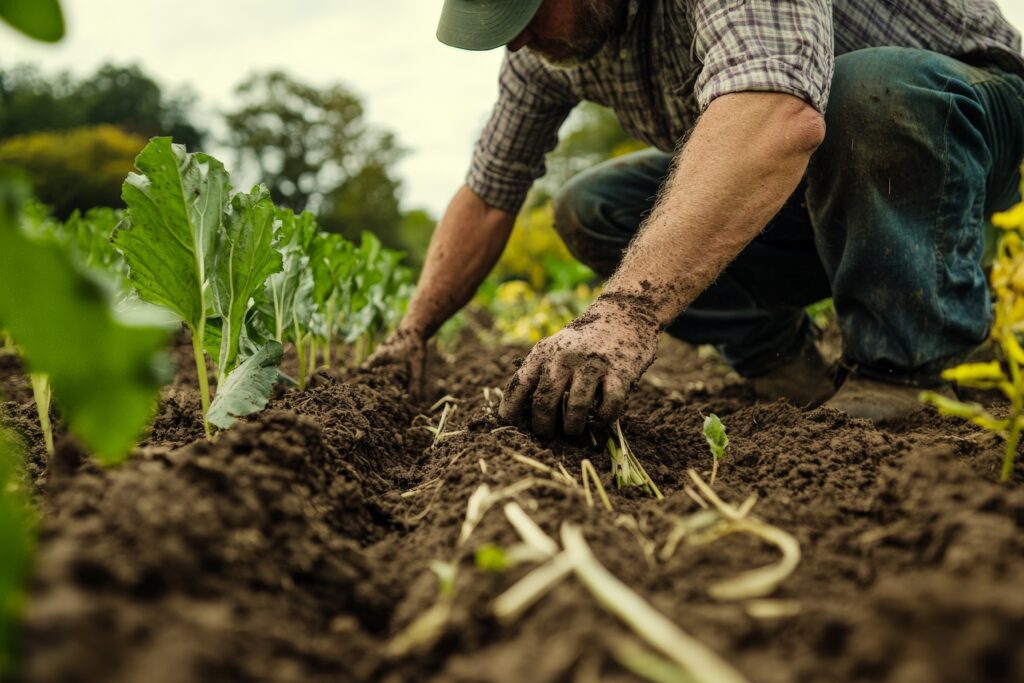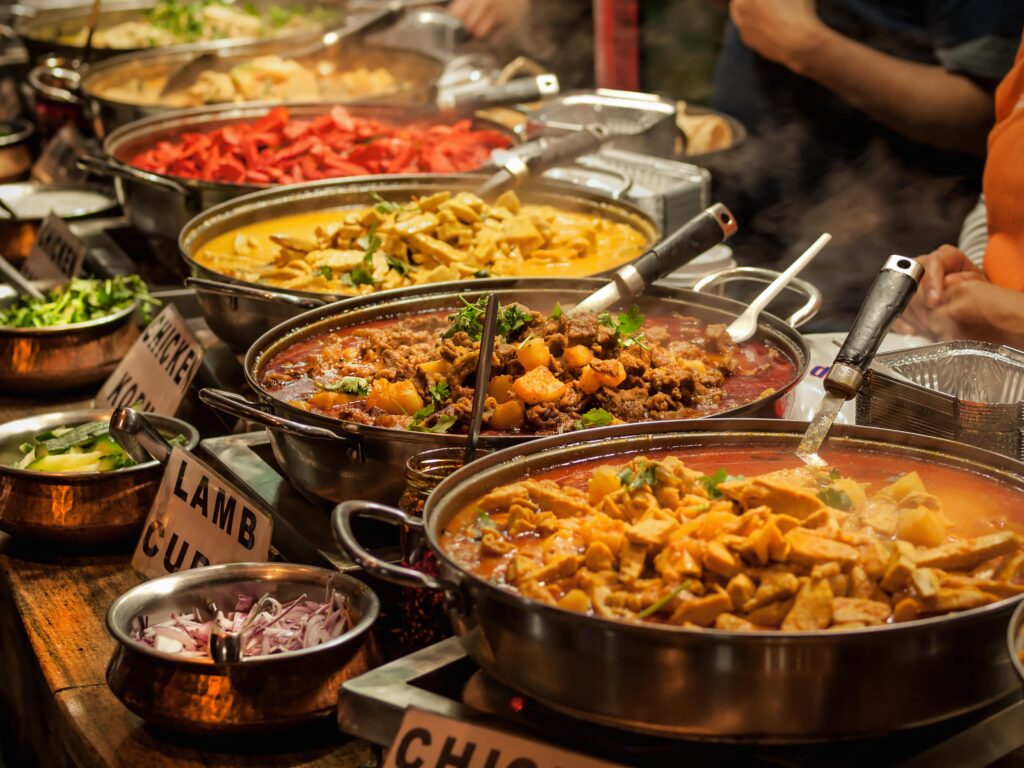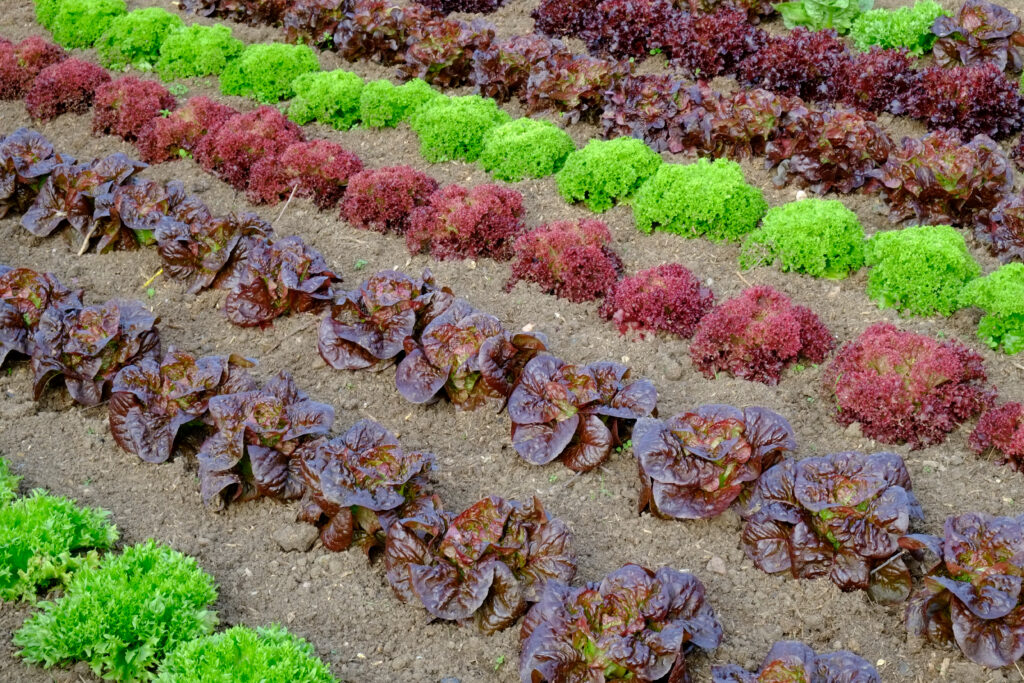Eco-friendly farming has gained significant attention in recent years as consumers seek sustainable alternatives to conventional agriculture and farmers explore environmentally friendly farming practices.
In this article, we’ll uncover exactly what eco-friendly farming is, explore sustainable agricultural practices, and why environmentally friendly practices support farmers and are essential for creating more sustainable food systems.
Eco-friendly farming explained
Eco-friendly farming, also known as sustainable farming or organic farming, refers to sustainable farming practices that prioritise environmental health, soil health, biodiversity, natural resources and resource conservation.
Unlike conventional farming methods, which often rely on chemical pesticides and synthetic fertilisers, sustainable agriculture practices aim to work in harmony with nature to preserve our ecosystem and agricultural environments long term.
Organic farming aims not only to produce nutritious food but to protect the environment from harm.
Key principles of eco-friendly farming
Here are some of the sustainable methods used in eco-friendly farming:
Soil health and conservation
Sustainable farming practices prioritise soil health as the key to long-term environmental sustainability.
Healthy soil is the foundation of eco-friendly farming. By looking to preserve and enhance soil fertility, farmers can ensure sustainable crop production without damaging the environment. Using techniques such as crop rotation, organic composting, reduced tillage and cover cropping helps to replenish nutrients in the soil, prevent soil erosion and improve water retention. Healthy soil organic matter also reduces the need for chemical fertilisers which can degrade soil health over time.
Reduced chemical use
A key benefit of organic farming is the reduction or elimination of harmful chemicals. Instead of relying on synthetic pesticides and herbicides, eco-friendly farmers use natural alternatives, such as beneficial insects, crop diversity, and organic sprays, to control pests and diseases. This integrated pest management helps to protect the health of crops, farmers, wildlife and consumers.
Water conservation
Efficient water management is crucial in organic farming. Rainwater harvesting, drip irrigation, and maintaining soil health through organic methods are sustainable farming practices that help conserve water and ensure it’s used responsibly. These sustainable farming practices help reduce water waste and prevent the pollution of local water sources from carrying chemicals and fertilisers.
Biodiversity preservation
Eco-friendly farming looks to support biodiversity by creating a balanced ecosystem on the farm. This may include planting a variety of crops, maintaining wildlife habitats, and avoiding monocultures (the practice of growing only one type of crop over large areas). Fostering a diverse range of plant and animal species allows eco-friendly farms to support pollination, natural pest control, and improve overall ecosystem health.
Animal welfare
Organic farming looks to raise animals in more humane conditions. Farmers who practice eco-friendly methods prioritise the welfare of animals by offering them more space, natural feed, and access to the outdoors.
Energy efficiency
Organic farming encourages the use of renewable energy sources, such as solar and wind power, rather than relying on fossil fuels. Additionally, efficient farm machinery, energy-saving technologies, and local food distribution systems can help reduce a farm’s carbon footprint.
Benefits of eco-friendly farming
Environmental protection
The most significant benefit of sustainable agriculture is its positive impact on the environment. By reducing the use of harmful chemicals and promoting sustainable farming practices, organic farming protects natural ecosystems, preserves soil health, and conserves water resources. It also reduces greenhouse gas emissions and promotes carbon sequestration through soil management.
Better health for consumers
Sustainable farming practices result in cleaner, healthier food for consumers. By avoiding synthetic chemicals and promoting organic methods, food is often free from pesticides, antibiotics, and hormones. This can lead to improved human health and fewer risks for consumers by reducing exposure to potentially harmful chemicals.
Economic sustainability for farmers
While transitioning to sustainable farming can require initial investment, it can lead to long-term economic benefits. By adopting sustainable practices, farmers can reduce their reliance on expensive synthetic inputs such as chemical fertilisers and pesticides and improve soil health which can contribute to more stable and profitable farming operations.
Supporting local communities
Sustainable agriculture often prioritises local food systems, supporting local economies and communities. By growing food sustainably and selling it directly to consumers or through local markets, eco-friendly farmers help strengthen the local economy. Additionally, sustainable farming supports small-scale farms that prioritise environmental stewardship over large-scale industrial operations.
Examples of eco-friendly farming practices
Organic farming
Organic farming is a sustainable farming method that avoids synthetic chemicals and focuses on natural resources like compost and organic pesticides. Organic farms often have stricter regulations for animal welfare, soil health, soil structure and water management.
Agroforestry
Agroforestry is the practice of integrating trees and shrubs into agricultural landscapes. This can help improve biodiversity and soil health, and provide shade for crops and livestock. Agroforestry can also help to prevent soil erosion. Soil erosion is a process that occurs when the impact of water or wind removes soil particles and causes the soil to deteriorate.
Permaculture
Permaculture is a holistic farming philosophy that mimics natural ecosystems. It focuses on creating self-sustaining, low-input farming systems by combining crops, animals, and water management systems that support one another.
Regenerative agriculture
Regenerative agriculture is a step beyond just sustainability, that focuses on rebuilding soil health and soil structure, increasing biodiversity, and improving local ecosystems. Sustainable practices like no-till farming, cover cropping, and rotational grazing all contribute to regenerating the land and reversing environmental degradation.
What can eco-friendly farming do for your restaurant?
As a restaurant owner or chef, you have the power to support sustainable farming practices by making informed food choices, particularly where you get your produce from and how you dispose of it. Here are some ways you can support sustainable farming and benefit your restaurant in the process.
- Buy local ingredients: Where possible, try to buy locally grown produce and sustainably produced food to support farmers. If you’re concerned about your carbon footprint, buying local helps reduce the environmental impact of transportation. Here at All Greens, we partner with small producers like Soul Farm and Richard Rowan who are fully organic and sustainable farmers – making it easier to shop locally and sustainably for your produce.
- Reduce your restaurant’s food waste: While prioritising sustainable farming is important, you can also do your part by reducing food waste as a business. Try to reuse leftovers in new dishes, reduce your menu size and store your ingredients correctly to minimise food spoilage.
The future of eco-friendly farming
Sustainable farming is an effective and crucial step towards building sustainable food systems in the UK. By implementing sustainable agricultural practices that protect the environment, organic farming ensures we have healthy nutritious food while preserving the planet for future generations.
Here at All Greens, we’re proud to support local farms and make fresh, seasonal produce accessible for all. Get in touch with us today at our New Covent Garden Market head office and see why 100s of restaurants around London love using All Greens.


